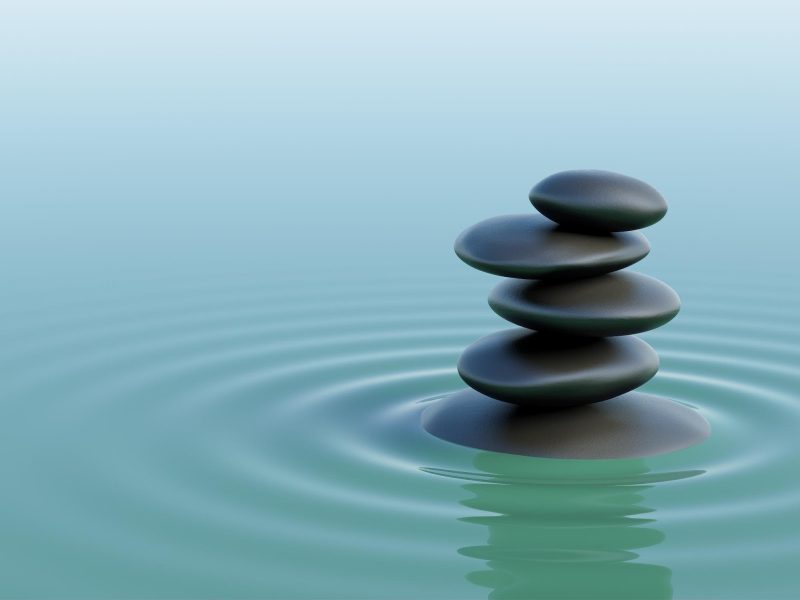Hello all! What a few weeks it’s been. In many ways, it doesn’t seem real. Things don’t make sense like they used to. Everything that we are used to – schedules, routines, places – all of those things aren’t the same at all. I think it would be an understatement to say that it’s left me (and I’m sure most of the world) very unsettled. When this all started a few weeks ago, I knew the priority for me and my family was to process this super abrupt change in all of our routines, and put some makeshift routines in place until we got into some semblance of a rhythm. ‘First things first’ meant making sure we had the groceries and household supplies we needed, figuring out a homeschooling plan for our daughter (over the course of about 48 hours), and developing some new work-from-home routines for myself and my husband. Activities and events were cancelled. And we spent a lot of time messaging with family and friends trying to figure out this bizarre change.
Through it all, I knew I needed some grounding strategies. I needed some consistency amid all the inconsistency. I needed some routines right now that I could keep coming back to that created stability and peace. The nervous system thrives on healthy routines – particularly the parasympathetic nervous system, which is the branch of our nervous system that calms us down and helps our bodies rest, digest our food, and helps to de-activate the “flight or fight” response. When we are in a calm state, our immune system also thrives and is able to do its job more effectively. So, in this time of extreme uncertainty, I think it is most beneficial to put some basic practices into place that don’t involve complicated systems or approaches. Things are complicated enough. What we all need are things we can incorporate daily that act to ground us, create ritual and routine in an otherwise upside-down world right now, and set us up to be well, physically, mentally, and emotionally.
Grounding strategies to create calm and bring some structure to the chaos:
- Create a new daily schedule. Yes – this sounds like a project, but it’s pretty basic, especially if you’re at home all day. Having some semblance of a schedule that you can get used to again will help decrease your stress levels. Your body and mind will start to anticipate your new schedule and it won’t seem so unfamiliar and unsettling anymore. Map out wake up times, meal times, work times, down times, and bed times. Stay as consistent as possible with these. Use these main activities as markers in your day, and fill in accordingly. The key here is consistency! Whatever works for you and your family, keep doing it. Don’t change things up too much right now. This also applies if you are an essential worker and still going to a job each day. Try to keep as consistent as possible a routine for yourself to help minimize stress.
- Sleep! Our bodies tend to need extra sleep when we are going through difficult phases or experiencing an increased amount of stress. Sleep also plays a HUGE role in optimal immune function, which is crucial right now, as well as helps your mind work through everything you’re thinking, feeling and experiencing throughout the day. Allow yourself to sleep a bit extra these days if possible, and stay consistent with wake up and bed times. Naps aren’t a bad idea either, especially if you’re feeling worn out, run down, or extra stressed. One caveat here: while sleep is important, you don’t want to overdo it. Too much sleep can cause problems with the sleep/wake cycle, trigger headaches, and actually lead to fatigue throughout the day. Opt for 7-9 hours at night, and if necessary, a quick 20-30 minute nap in the afternoon if you need to unplug from the world for a bit.
- Develop a morning routine. Maybe you’re used to running out the door for work each morning after a marathon of getting everyone else ready to go. One silver lining here is that now you may have some extra time to really craft your “ideal” morning. This looks different for everyone. I love to move in the morning (even if it’s just a 15 minute workout or stretching), have some warm lemon water, read, journal, pray, and listen to podcasts while I get ready for the day. This really helps set the tone for a calmer, more productive day, even if I’m home all day. Think about those things that you might like in the morning. Going for a walk outside? Getting in some reading or journaling? Meditating? Sitting quietly with a cup of coffee on the patio? Whatever it is for you, do it! And enjoy it! Even if you have babies or small children (which I know can make a morning routine infinitely more challenging), find at least one thing that you can do before everyone else wakes up that’s just for you. Even if it’s just for 15 minutes. The amount of peace a morning routine brings is amazing.
- Develop an evening routine. If possible, designate an “end” time to your work day. While it may seem very tempting to be available at all hours right, it’s not great for your health or your peace of mind to constantly be in work mode. Figure out how much time each day you reasonably need to get an adequate amount done, and set your work day according to that. But don’t go overboard! If you typically work a 7 or 8 hour day at the office (or wherever your work takes place), realize that now that you’re trying to work from home, that “typical” 8 hour day is going to look and feel drastically different. Things may not actually take as long, or some projects may be more difficult, but either way, your new “workday” has to account for a lot more interruptions and the fact that you are never physically leaving work for the day. So, plan to log off at a certain time each day or evening, and plan some enjoyable family time to look forward to. Maybe cook dinner together, relax over a glass of wine, or watch a movie or favorite show. Give yourself time to downshift from your day just as you would if you were gone all day.
- Eat well. While grocery runs and menu planning might look far from perfect right now, commit to eating as many whole foods as possible. While days at home present endless opportunities for snacking, your body needs consistent and nourishing meals, especially right now to help fortify your immune system and keep you focused and balanced. Meals don’t have to be complicated. But they should be nutrient-rich and free of artificial colors, flavors, and preservatives. And opt to get in as much fiber and vitamin-rich fruit and veggies as possible! Plant-based meals are nutrient powerhouses, especially nutrients such as Vitamin A and C, which are great immune system boosters!
- Have some positive outlets. Trying to juggle working from home, caring for and/or homeschooling children, and keeping up with the ever-changing news cycle is a monumental task. Find a relaxing hobby or interest area that you can go to each day to provide some relief. This could be reading, sewing, cooking, crocheting, crafting, playing an instrument, journaling, coloring, exercising…the list is endless. The bottom line is that it should be something that brings you joy, brings you some moments of peace, and takes your mind off of everything else for a bit.
- Stay connected with family, friends, and coworkers. This is crucial. Our relationships play a major factor in our ability to lower inflammation, fight disease, and prevent chronic illness. Our relationships can also help prevent mental or emotional illness, such as anxiety or depression. Make it a point to schedule regular phone calls, and if possible video chats, so you can actually see the other person you’re talking with.
I truly hope you find this list helpful and healing right now. Many times, it’s the basics that create very powerful foundations for health and happiness, and I really believe that now is the time to get back to what is most nourishing for body, mind, and spirit. If you’d like to go even further into developing a plan for your health and happiness moving forward, check out my signature coaching program. All new clients right now receive 50% off the original price of a six-month program!






 Welcome to My Blog!
Welcome to My Blog!

